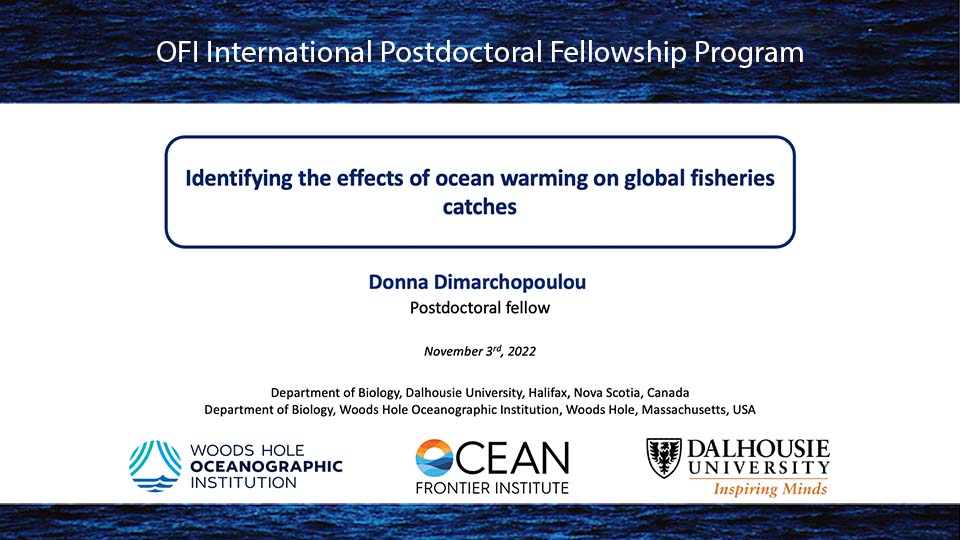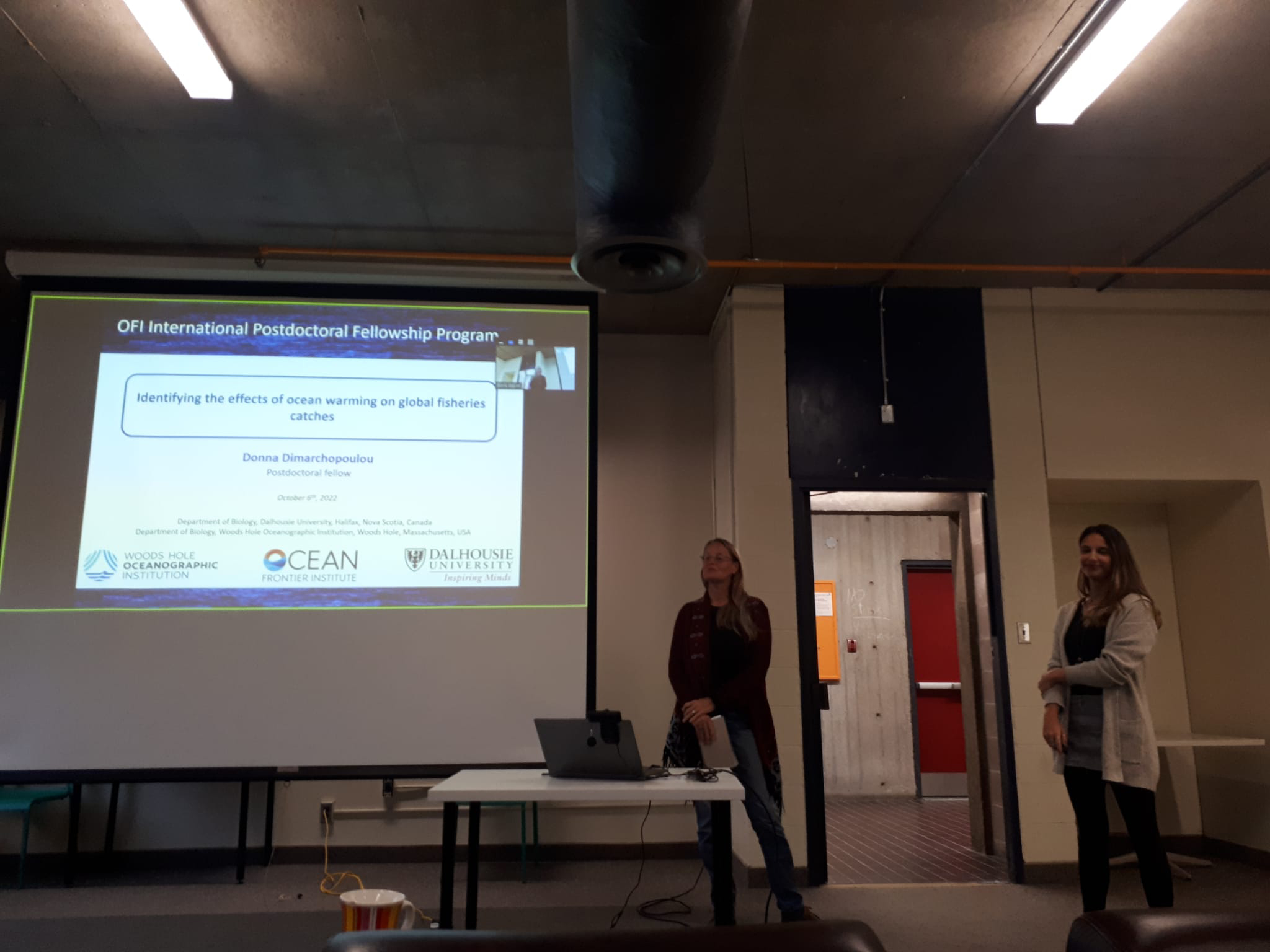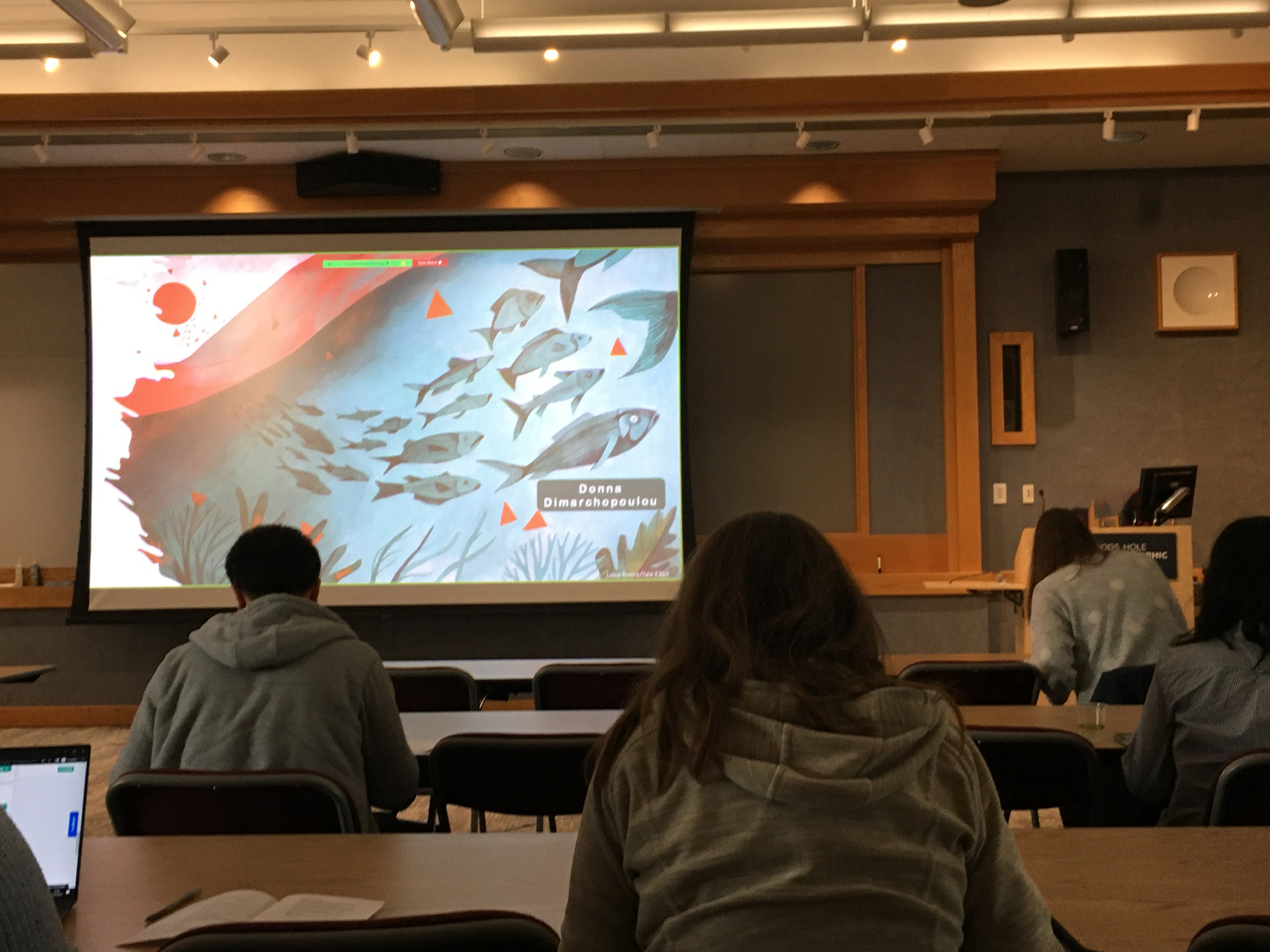October and November have certainly been busy-busy months. Super excited that I had the chance to talk about the signature of ocean warming identified in fisheries catches globally and specifically share some first results of my research in the NW Atlantic Ocean with students, other postdocs, and faculty at Dalhousie University (Halifax, Nova Scotia, Canada) and Woods Hole Oceanographic Institution (Woods Hole, Massachusetts, USA).
All three talks summarized below, at the Biology Department seminars of Dal and WHOI, as well as at the WHOI postdoc symposium, generated stimulating and constructive discussions adding new perspectives, ideas, and suggestions for future research steps. Some topics that were raised for discussion follow below:
- How can one disentangle the different mechanisms that might drive changes in the mean temperature of the catch index? Is it mainly ocean warming, or do management decisions (e.g., moratoriums and quotas) and fishers’ targeting preferences also play a role by modifying fishing mortality and affecting catch composition? Analyzing survey data and also looking into stocks that have official assessments will contribute to having a more complete picture of what’s actually going on within changing ecosystems.
- How certain can we be about species’ preferred temperatures? Performing sensitivity analyses to account for the associated uncertainty is key for explaining the observed patterns.
- Is it better to use single unified databases to detect MTC patterns across areas and countries or should we make comparisons across datasets?
- Is the MTC index more suitable for detecting global over local patterns? What is the smallest area that can be used to detect meaningful patterns in the MTC?
You can have a look further down for a summary and recording of the talk.
Summary
Climate change is already affecting marine ecosystems and shifting species from their historical ranges into previously unsuitable and sometimes poorly protected environments. Because of its rapid rate of warming, the Northwest (NW) Atlantic is an ideal region to study the impact of rising water temperatures on species distribution and fisheries catch. A well-established approach that has been used to assess climate-induced changes is the mean temperature of the catch (MTC) index that can identify the signature of ocean warming in the most widely available dataset for fisheries, i.e., fisheries catches. Here, we used up-to-date catch datasets from global and regional sources to detect MTC trends along a latitudinal gradient on the east coasts of the US and Canada. Variations were observed in the estimated MTC trends between the different datasets, owing to differences in the spatial and temporal resolution of the data. Nevertheless, results indicate that, overall, the MTC has been increasing in the NW Atlantic for the past decades due to a considerable decline in catches of cold-water species like cod and halibut, and a more gradual increase in catches of warmer-water species such as lobster and mackerel. The observed patterns of MTC change over time were in line with observed increases in sea surface temperature across the region. Revealing patterns of shifting fish stocks and community composition, which have consequences for seafood supply, fisheries revenues, and livelihoods, may help project future conditions and inform national and transboundary management policies in a changing climate.


